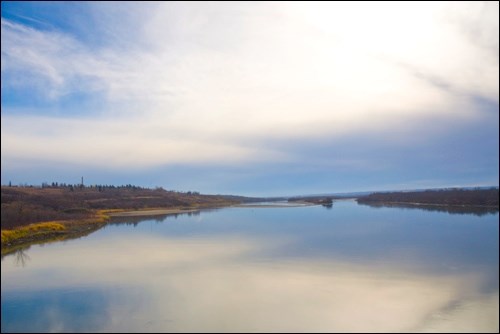Saskatchewan's western neighbour estimates the annual cost to municipal, agricultural and industrial infrastructure could easily be $75 million if quagga and zebra mussels invade Alberta's lakes, rivers and irrigation canals.
In 2014, the Alberta government invested over $500,000 in an ongoing effort to stop that invasion.
Saskatchewan's eastern neighbour is already playing catch-up, investing approximately the same amount in 2014 in a failed attempt to treat portions of Lake Winnipeg where zebra mussels were first identified as having reached Manitoba in 2013.
The looming economic threat posed by invasive mussels to Saskatchewan is at least as high as for our provincial neighbours, and the numbers don't even come close to including the threat to the ecology of prized fishing and recreational lakes.
As Renny Grilz, watershed co-ordinator with the South Saskatchewan River Watershed Stewards, comments, "our province seems to be behind Alberta in addressing this threat, and has only recently begun to develop a strategy."
Grilz continues, "Our fear is that, strategy or not, in this era of government fiscal constraints, the necessary resources to inspect recreational boats in transit, to monitor our waterways for mussels and other invasive species, or to create awareness of the issue, simply won't be on the table."
The University of Windsor's Dr. Hugh MacIsaac likely knows more about the national implications of these invaders than anyone else in Canada and the United States. He is the Canada research chair in Aquatic Invasive Species and director of the NSERC Canadian Aquatic Invasive Species Network II. He also heads up the MacIsaac Lab at the university, where he is a professor of biology with the Great Lakes Institute for Environmental Research.
The Prairie Waters Working Group, in collaboration with Saskatchewan's 11 water stewardship organizations, has invited Dr. MacIsaac to present two workshops on Feb. 11 (Saskatoon) and Feb. 12 (Regina). The workshops are specifically designed to address expected impacts of mussel invasion, predicting risk, risk prevention and opportunities for eradication, along with species identification and monitoring.
In the 1980s, zebra and quagga mussels came to the United States and Canada from eastern Europe, travelling in the ballast water of seagoing ships which discharge the water into our coastal harbours and the Great Lakes before loading cargo for export.
From there, these voracious and massively prolific invaders happily attach themselves to pretty well any submerged object, and if those objects move through water (or over land on boat tailers and equipment), the mussels move with them and set up shop when they reach the next destination.



